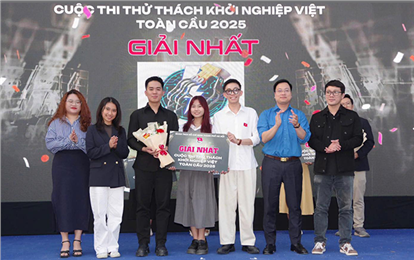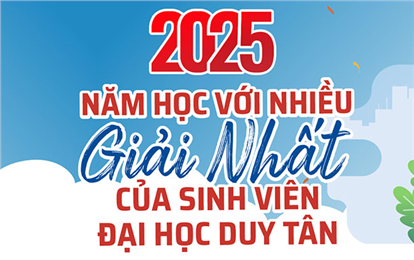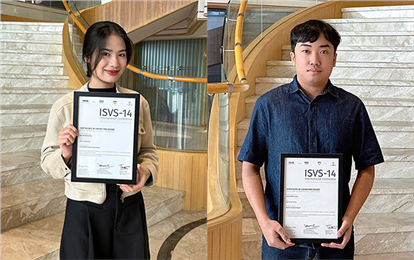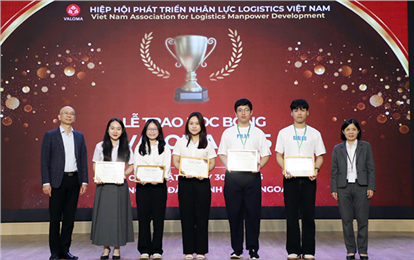Achievements
DTU - Vietnamese University in Hult Prize 2019 Southeast Asia Top Seven
On April 5 and 6, 2019, several rounds of the 2018–2019 Hult Prize took place in Ho Chi Minh City, with 44 teams from many different countries.


Global arena for entrepreneurs
The Hult Prize, sometimes dubbed the Nobel Prize For Social Entrepreneurs, is an annual startup prize for students from all over the world, sponsored by the United Nations and former US president Bill Clinton in collaboration with the Hult International Business School. The prize aims to encourage enterpreneurship and the will to make it in students, to strive to found their own businesses and create jobs for themselves and for others. The prize furthermore provides projects with potential with an opportunity to find investors, to realize the dream of starting one’s own businesses. Organized for the first time in 2009, the Hult Prize has been extended to over 120 nations and more than 1,200 participating universities. The total value of the final prizes goes up to one million US dollar, which will be awarded to the student teams with most outstanding ideas towards the resolution of a hypothetical issue set forward by the jury.

The DTU team reached the Hult Prize 2019 Southeast Asia finals
For 2018–2019, the Hult Prize had the topic “Can you build the foundations of a venture that will provide meaningful work for 10,000 youth within the next decade?” which attracted a great many young startup enthusiasts from all over the world. Six months after the kick-off, the 44 teams with best competition achievements gathered in Ho Chi Minh City to face off against each other. The teams were from 40 universities in many different countries, such as India, Bangladesh, Hong Kong (China), Zambia, and the Philippines.
15 of the teams were Vietnamese and came from big universities like the Foreign Trade University, RMIT university, the Danang University of Economics, Ton Duc Thang University, and DTU - the last one remarkably with two teams.
The competing projects at this year’s contest were very diverse, ranging from science, technology, and engineering to history and medicine to education and social sciences.
DTU, one of the seven teams in the finals
During the contest, the 44 teams were split into six groups to present their projects and ideas, answer questions from the jury, listen to feedback from the other teams, and also vote for the teams in other groups. All of the teams left a good impression with their very fluent presentation styles, confident analyses and problem-solving, and display of deep and wide understanding not only of the field their project is in but also of other, related fields.

A great many contestants from various nations around the world took part in the Hult Prize 2019
After deliberation, the jury selected the seven most outstanding teams to advance to the Hult Prize 2019 Southeast Asia final round in the afternoon of April 6, 2019. These were two teams from Bangladesh, one from India, one from Hong Kong, one from Zambia, one from the Philippines, and one from Vietnam, a DTU team. The DTU team was composed of the students Le Viet Do, Nguyen Truong Nhat Tan, Le Larsen Wilma Huong, and Truong Van.
With their “Worky - software to connect restaurants and hotels with young people to solve employment needs”, the DTU team tackled the issue of finding employment for 10,000 people in ten years which the organizers set forward to become one of the seven teams to advance to the Southeast Asia final round.
The project not only connects young people hunting for part-time jobs with restaurants and hotels, but it also taps into the technological development trend that as good as all young people nowadays use smartphones. The Worky interface is designed to be simple, adapted to the Vietnamese, easy to use, and suited to all types of smartphone and operating system - very convenient overall. Through Worky, users can rapidly access the newest recruiting information, also allowing recruiters to save time.
“There are a great many young people nowadays - and especially students - who want to use their free time to find work,” says Le Viet Do, first-year student of Marketing Administration at DTU and representative of the group who realized Worky. “They have to spend a lot of time wandering along the streets or browsing websites to find recruiting information, though. Or else they have to sign up at job centers and wait a long time. With Worky, we hope to help job hunters rapidly and easily find a part-time job suiting their needs. With a few simple steps Worky can be installed on your smartphone, and you will quickly be able to access job information in the field and during the time you want, after which you can contact the recruiter directly based on the information provided to discuss or agree on the job.”
For more information on Information Technology training at DTU, see: The International School and The Faculty of Information Technology
(Media Center)
Other News









